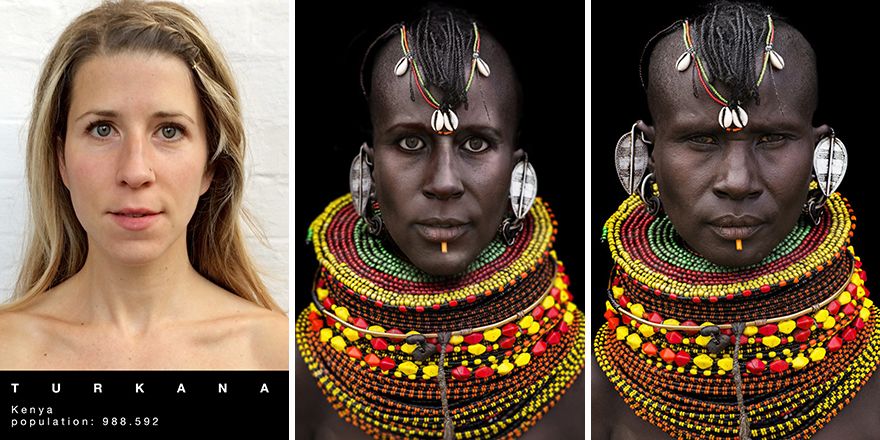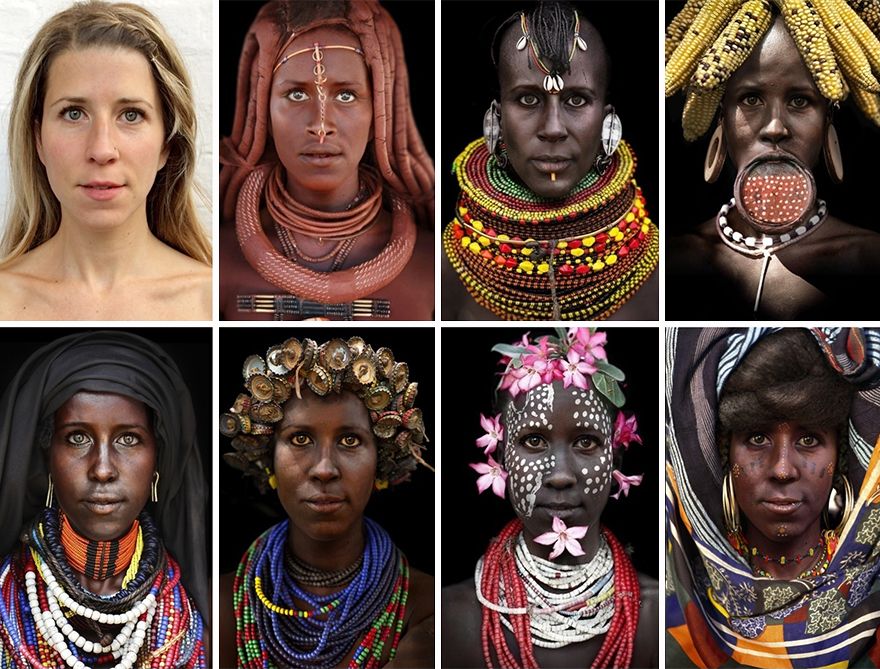You Should Not Have to Center Yourself to Show Empathy
There are many reasons to be skeptical of white allies. While the people of marginalized groups fight to live and thrive, allies often fight for kudos and spotlight. Those who need the most care have repeatedly been burned by the good intentions of people who claim they are here to help. Because of this, the marginalized become tasked with an additional burden of weeding out the self-interested.
We are not only battling apathy but entitlement. Too many well-meaning white folks think that their acknowledgement of a struggle against injustice gives them a right to co-opt it as they wish. They believe their mere presence so valuable that they go on to take up all of the space.
The photo series is shocking in its disregard for the significance of these cultural aesthetics. Balogh committed the most fundamental appropriation taboos and claims she is raising awareness of the endangered. That may be her genuine intention, but the project only manages to center whiteness, yet again, in a critical discussion of Black people and Black cultures. She has literally erased the women she claims to serve. This is objectification masked as admiration.
Her feeble attempt to utilize white privilege for good underscores that many white allies have yet to fully grasp the weight of their unearned social position. In typical colonizer fashion, Balogh believes that her white body elevates the cultures—that she can communicate more in the traditional garb of these tribes than the women to whom the heritage belongs.

We do not need white people to use their privilege to fuel their own narcissism. Privilege is best used as a bridge between those who have it and those who do not. Laying down is white people’s work.
Cede the floor. Usher those in who are rarely seen and heard. Allow the people who experience marginalization to tell their own stories. These are the first steps in preserving the dignity of a people who are continually overlooked. Our allies should not use the racial empathy gap as an excuse to be the face of oppression.
In white supremacy, we are socialized to believe that Black bodies need co-signers, but the people of these tribes do not need a savior. Balogh with her resources and whiteness could just as easily have put together a photo series that features the authentic voices and likenesses of the women of these tribes. But she’s used them as props and further stripped them of their humanity.
If you really want to help, remember that your vanity projects are not activism.
Photo Courtesy Boglarka Balogh
Kimberly Foster is the founder and editor-in-chief of For Harriet. Email or Follow @KimberlyNFoster

No comments: